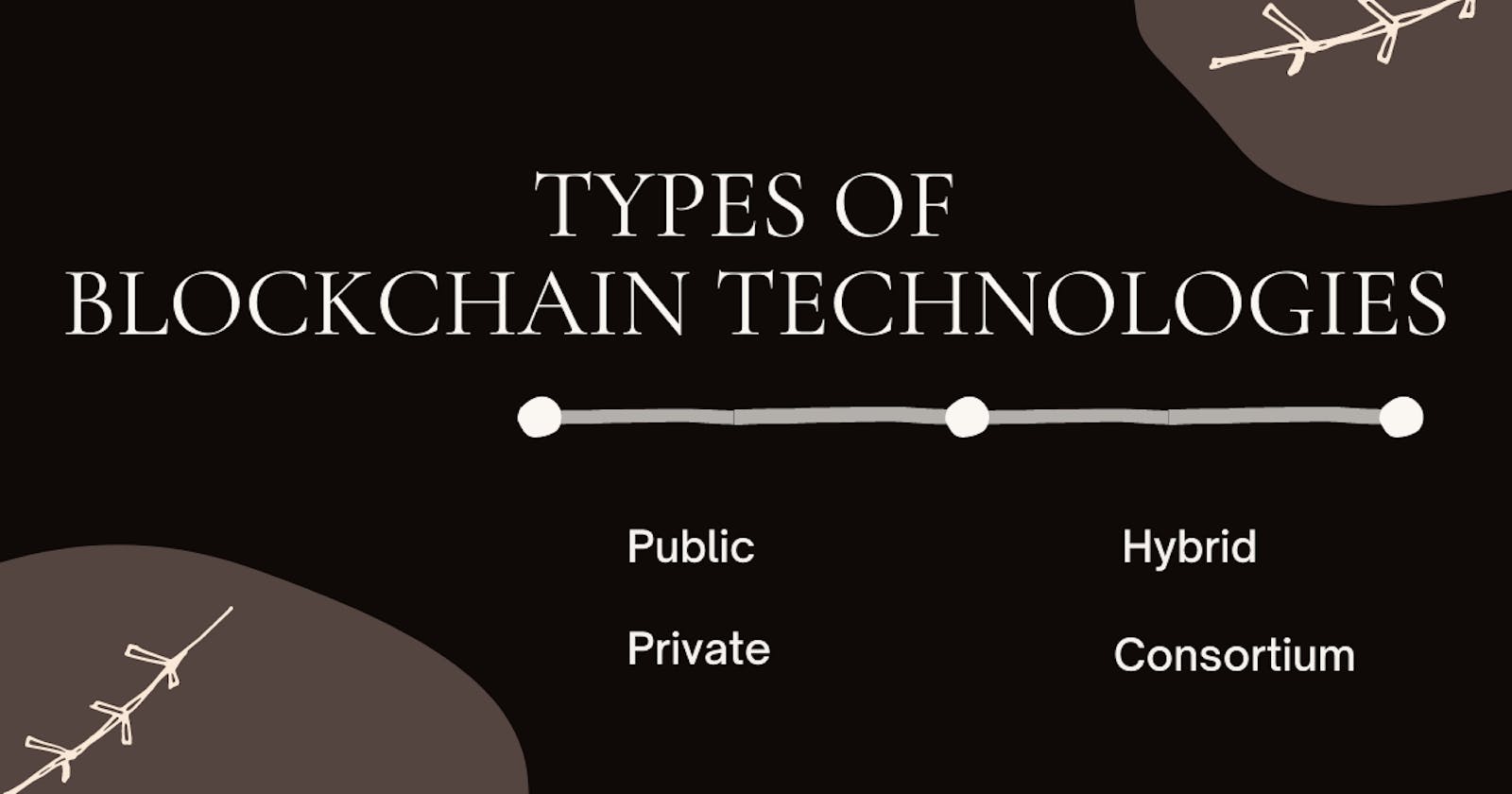What are different Types of Blockchain Technologies?
Let's understand the 4 different types of blockchain technologies quickly in simple words.
You have heard the buzzword “Blockchain”.
Now, let’s see the different Types of Blockchains in a minute ↓
Although Blockchain technology is the same for all, their use cases are different. Hence, the diversification.
A Thread...
1) Public Blockchains
If you are a beginner and heard about blockchain tech, that’s a public blockchain. They are accessible to everyone.
Anyone with an internet connection can sign up and become a node for that blockchain.
Advantages - Permissionless, Independent, Transparent.
Disadvantages - Slow, Not scalable
Eg. Bitcoin, Ethereum, etc.
2 ) Private Blockchains
You can think of this as being the opposite of public #Blockchain.
Private Blockchains are managed by a central organization. They are not completely decentralized.
They are mainly used by large organizations for their internal company use.
Advantages - Access Control, Blockchain features.
Disadvantages - Permissioned, Not transparent.
Eg. Ripple, Quorum.
3) Consortium Blockchains
Consortium is more of a Private Blockchain minus some disadvantages. Cool Right!
They are operated by a group of organizations and hence also called Federated Blockchains.
This limits the control of one particular organization over the system.
Advantages - Secure, Scalable, Access Control
Disadvantages - Permissioned, Not Transparent.
Eg. Hyperledger.
4) Hybrid Blockchains
Hybrid Blockchain is the baby of Public and private blockchains.
It has the security and scalability of private blockchain and public permissionless systems.
Extremely efficient to store and access data in a Hybrid Blockchain.
Advantages - Secure, Fast, Cheap
Disadvantages - Upgrading is difficult because of the lack of incentives to participate and transparency.
Eg. IBM Food Trust
